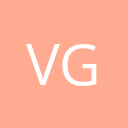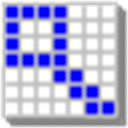Uncovering the Best Lens (Magnifier) Alternatives for Enhanced Screen Magnification
Lens (Magnifier) has long been a valuable tool for users requiring pixel-accurate magnification around their mouse pointer, offering continuous updates, measurement capabilities, and adjustable magnification factors. However, like any software, users may seek Lens (Magnifier) alternatives due to platform preferences, specific feature needs, or simply to explore other excellent options available. Whether you need a free solution, cross-platform compatibility, or advanced annotation tools, there's a magnifier out there for you.
Top Lens (Magnifier) Alternatives
Looking for a different approach to screen magnification? Here are some of the top alternatives to Lens (Magnifier) that offer a variety of features to suit your needs, from simple zoom to advanced accessibility tools.

ZoomIt
ZoomIt is an excellent Lens (Magnifier) alternative for technical presentations, offering screen zoom and annotation tools. It's a free, portable Windows application that allows you to easily annotate screenshots and utilize its screen magnifier feature, making it highly versatile for demonstrations and detailed work.

Magnifixer
Magnifixer is a straightforward and free screen magnifier utility for Windows. Similar to Lens (Magnifier), it allows you to place its window anywhere on your screen, adjust its size, and select a zoom level, providing a continuous magnified view of your desktop.

Virtual Magnifying Glass
For those seeking an open-source and cross-platform Lens (Magnifier) alternative, Virtual Magnifying Glass is a superb choice. It's free and available for Windows, Linux, FreeBSD, Mac OS X, and PortableApps.com, featuring robust screen magnification and zoom integration capabilities.

Glassbrick
Glassbrick is a free Windows screen magnifier that simplifies zooming and enhances readability by allowing you to change screen colors. Its portability and zoom integration make it a convenient accessibility tool, offering a different approach to visual enhancement compared to Lens (Magnifier).

OneLoupe
OneLoupe provides a customizable screen magnification experience on Windows. This free and portable tool runs in the system tray, offering quick activation via click or hotkey, making it a flexible Lens (Magnifier) alternative for users who prefer keyboard shortcuts.

Zzoom
Zzoom is a free Windows application that combines a screen zoomer with a color picker and image grabber, offering more than just magnification. Its portable nature makes it a handy Lens (Magnifier) alternative for users who need a multi-purpose utility beyond simple zooming.

Compiz Enhanced Zoom
For Linux users, Compiz Enhanced Zoom is a free and open-source plugin that allows for whole-screen magnification, enhancing legibility while allowing continuous work with other applications. This makes it a great Lens (Magnifier) alternative for those within the Linux ecosystem.

Zoomtext
Zoomtext Magnifier is a commercial Windows alternative to Lens (Magnifier) that excels in enlarging and enhancing everything on your screen for improved visibility. Its revolutionary 'xFont' technology ensures crystal-clear text, and it offers full-screen support and compatibility with multiple monitors, catering to advanced accessibility needs.

iZoom
iZoom Screen Magnifier & Reader is a commercial Windows solution that offers a leap in screen magnification technology. Its patent-pending ClearPoint font smoothing maintains clear text, making it a powerful and portable Lens (Magnifier) alternative for users prioritizing superior text clarity and advanced screen reading features.
Ultimately, the best Lens (Magnifier) alternative depends on your individual needs, whether you prioritize cost, platform compatibility, specific features like annotation or color picking, or advanced accessibility functions. Explore these options to find the perfect screen magnification tool for your workflow.